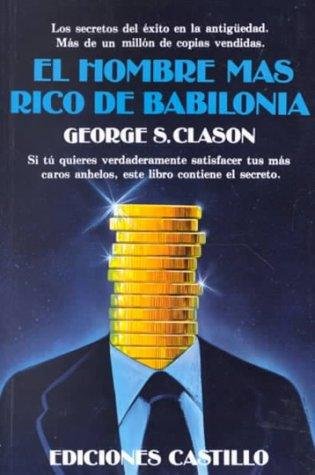Old tips on capital management.

Preamble
I was recently cleaning and I found an old book in one of the drawers where I keep things from years ago, it was a book of the last century (1999), you can even say with a touch of humor that is from the last millennium , which had been given to me by one of my uncles: "The Richest Man in Babylon" by George Clason.
The edition I had in my hand was in Spanish and it was fine in general terms, I tried to remember and I think the book was about transmitting a set of tips on money management and the growth of own capital through a series of stories short that fulfilled the role of parables.
It is a style of self-help books that I still find today, although I have memories of books in that style that were from the 70s of the 20th century inclusive.
Initial Advice
In the first story that gives advice, I found some very simple:
Remember that part of what you earn is yours to save.
When you already have a capital that you can dispose of without affecting your living expenses: Use it in investments that multiply your money.
When you invest or ask for advice to invest, refrain from doing so with people who do not know the businesses in which you want to get involved.
They are simple, you can say that the first thing is not to spend more than you spend and adjust your budget to be able to save a portion, either 10% or 20%, that is of an amount that does not make your life miserable, but you allow you to set a savings goal for later use.
That leads to the second advice, although saving is the basis to start, then you have to use capital as a seed to germinate new projects, market products or any other activity that can generate a profit. The way your money grows is to make it circulate. You may well use it for personal pleasure, but out of momentary satisfaction I would not leave you anything else.
But it is noticed in the third advice that it is not simply to go on a crazy adventure of placing money in the hands of anyone who promises you incredible things, because you are much more likely to lose yourself than profits. What the author recommended was to seek the advice of experts in their fields who already had recognition for their achievements, or professionals who could give a work plan to use your investment in a realistic way, but in any case, it is about investing intelligently, studying and evaluating the options.
Questioning
There is a fragment in the first story that caught my attention and gave me reason to write the post:
... "often, youth believes that old age knows only the wisdom of the days that have gone by and therefore does not benefit them. But remember this: the sun that shines today is the sun that shone when your father was born and it will still be shining when your last grandson passes into darkness. The thoughts of youth are bright lights that flash like the meteors that make the sky shine; but the wisdom of old age is like the fixed stars that shine so constantly that the sailors can depend on them and govern their course. "
So: what do you think about that idea that the old councils can remain useful in today's times?
Resources